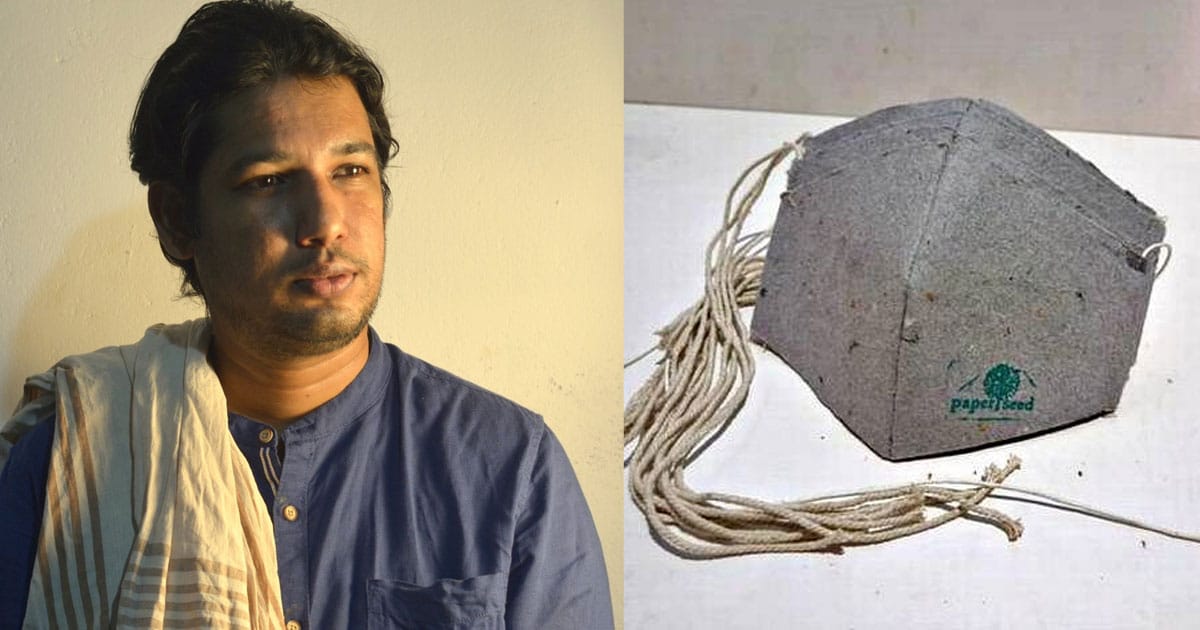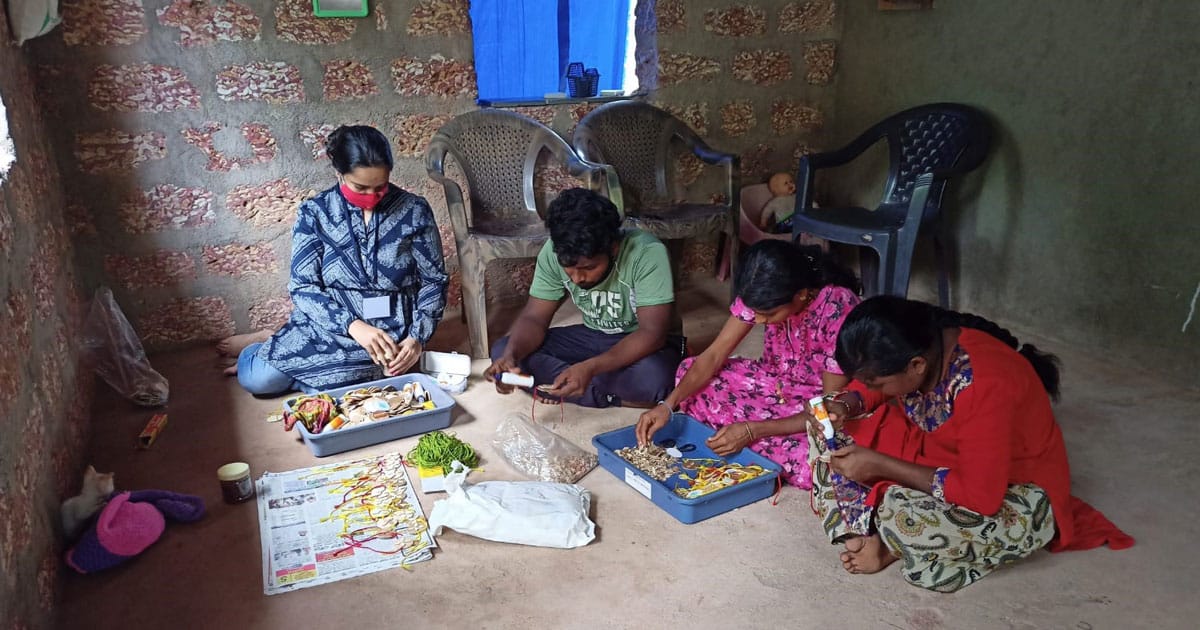Face masks have become the new normal throughout the world as a result of the COVID-19 outbreak. Although it is critical to wear a mask to prevent the spread of the virus, many people overlook the impact on the environment of discarding single-use masks.
Meet Nitin Vas, an environmentalist activist from Mangaluru, Karnataka, who has created a one-of-a-kind innovation: a single-use mask loaded with seeds. It turns into a plant when deposited into the soil.

His social company, Paper Seed Co, which has been producing recycled and plant seed products since 2017, began experimenting with masks after the hit of Covid. Nitin believes in Gandhiji’s Swadeshi concept, which led him to start something to aid the environment during the pandemic.
“We make a variety of seed-based items, including seed masks. Our major goal is to give a sustainable and eco-friendly substitute to the masks that are currently in use,”
Nitin said, speaking to Life Beyond Numbers.
Nitin introduced the seed masks in March this year. He founded Paper Seed Co in 2017 that already produces eco-friendly goods and adheres to the idea that nothing is a waste.
They started with seed papers and progressed to seed pencils, pens, and several other things. Paper Seed Co. also produces invitation cards, visiting cards, and even booklets that, when dumped into the ground, develop into plants.
“We provide adequate training to remote village women and youths, as well as the raw materials used to produce the items,”
he said.
“The masks we make are biodegradable and also the straps are cotton. Its unique feature, however, it contains seeds when deposited they develop into plants,” he added.

Nitin further added, “Initially, we gave away the masks for free but not anymore. To create job opportunities for the rural people we sell it for Rs. 25 and, it is totally handmade. More than India, we received the majority of the orders from abroad. They also wanted to develop the concept.“
Also, read: Meet The Recycle Man Of India, Turning Used PPE Kits And Masks Into Bricks
The masks are made from cotton shreds gathered from the textile industry. The outside cover of these masks is produced from cotton pulp derived from different scrap materials gathered from the garment industry, whereas the inside linings are created from soft cotton cloth. The eco-friendly masks are thick and powerful enough to keep the virus at bay.
“We were working with 32 families, but after our market collapsed during the first lockdown we had to cut down the workers. One of the major challenges is that our products are made out of seeds having around 3-4 months shelf life. It was a total waste as we were not able to sell them during the lockdown.”
They not only design goods to reduce environmental impact, but the firm also avoids using machinery that is potentially dangerous to the environment.
During Independence Day, Nitin made seed badges representing the Indian flag colors made out of Areca palm leaf which, can also be grown as plants after disposal.
The badges also include vegetable seeds like Brinjal, Tomato, and Palak. which can be planted in the garden, pots, or other lands.
Not just that, even the Rakhis are made of areca nut leaf and paper pulp that grows into a plant.
Talking about future plans, Nitin said, “We want to start a Paper Seed Village in the future. This is to generate jobs for rural women and, we want to create a natural and eco-friendly environment rather than a corporate ambiance. We don’t want to restrict people’s freedom of thinking.“

